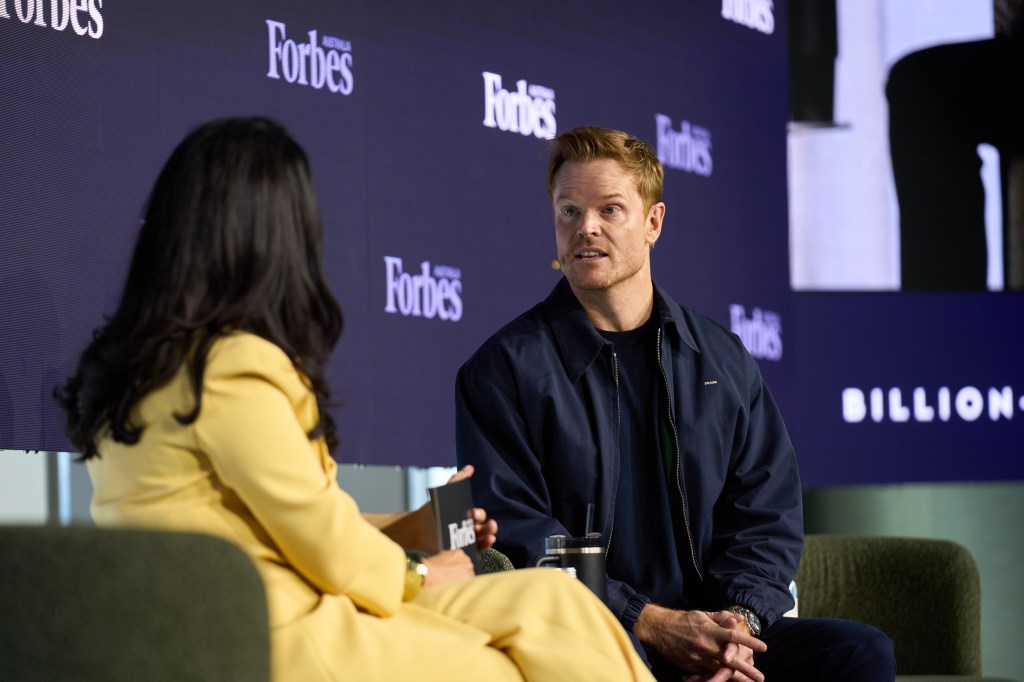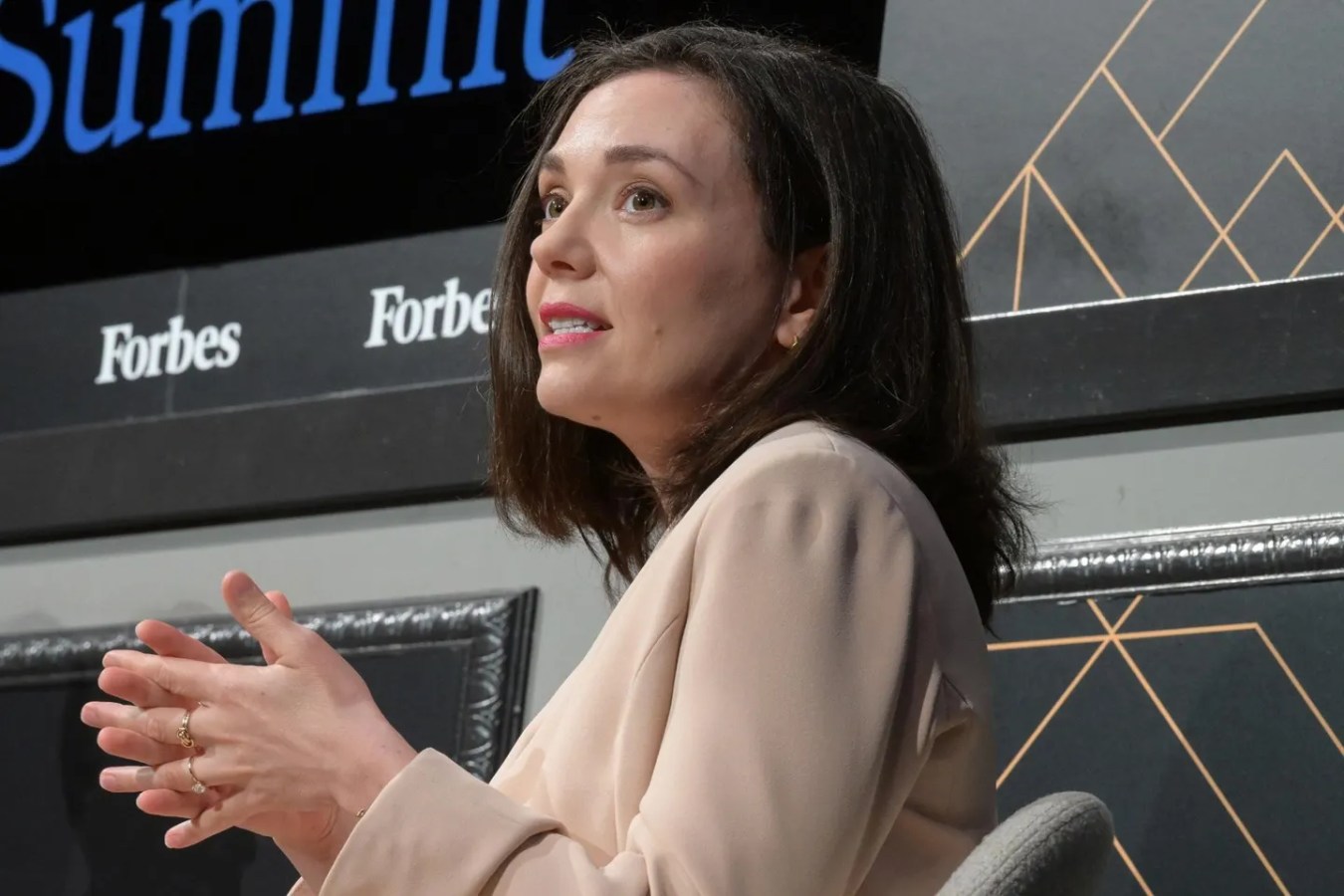Nick Mowbray still describes ZURU’s early years in three words: eat, survive, repeat. Now running a multibillion dollar company spanning toys, FMCG and construction tech, he has a simple rule when it comes to leadership – keeping teams flat and backing “ideas over hierarchy”.

He and his brother Mat moved from New Zealand to China at 18 with no real plan or experience in manufacturing. They worked out of a small factory on the outskirts of Guangzhou, lived on a dollar a day and spent close to a decade trying to make a product that would actually sell.
Their idea was simple. Make toys, sell toys, stay alive long enough to learn how the industry worked.
On stage in Australia for the first time, he told Forbes Australia editor-in-chief Sarah O’Carroll that nothing about those years looked strategic. They were learning on the fly and hoping one idea would hit. It finally did with Robofish, the small mechanical pet that took off worldwide. But even that wasn’t smooth.
Those years shaped the way ZURU still operates. Mowbray’s golden rule is now simple – no fixed structures. “I always say it should be ideas not hierarchy,” he told the room.
“If you look at any great leader from Dyson, from Apple, from Tesla, they were product people first and sales people second. As a leader you have to be obsessed with product and obsessed with selling.”
His sentiment towards artificial intelligence is similar. “AI will never replace human relationships. AI can’t build trust, trust is built through relationships,” Mowbray said.
He rejects the idea that executives should float above the details. If leaders step back, he said, the company slows. “Everyone at Zuru is still on the tools,” he said.
Inside ZURU, review cycles are constant. Every two weeks, teams go through hundreds of concepts in toys, household goods and beauty. Most die in the room. He says the point is to keep tightening the hit rate.
That same rhythm drives its FMCG brands, where ZURU monitors TikTok, search shifts and cultural signals each week. If something moves, they push it through the system. If not, it gets dropped. Mowbray said that speed is what lets them take market share from incumbents who don’t move until a quarter has passed.
Hiring follows the same logic. ZURU screens for people who can handle pace, not pedigree.
He said in China, 59,000 people applied for graduate roles this year. Only a handful made it through testing and trial periods.
“Grit reveals itself under pressure. You can’t really determine grit in an interview.”
Nick Mowbray
The biggest shift in recent years has been the move into construction technology. ZURU Tech is building a unified system that designs and manufactures homes through automation. It is not a small side project. Factory build outs, software development and structural engineering systems all sit inside the group. Mowbray sees it as a direct extension of how they learned to build toys.
Despite the scale of the business, Mowbray still talks about the company like it’s a work in progress. ZURU is tracking to around $4.5 billion in revenue this year, rising close to $6 billion next year.
Look back on the week that was with hand-picked articles from Australia and around the world. Sign up to the Forbes Australia newsletter here or become a member here.


